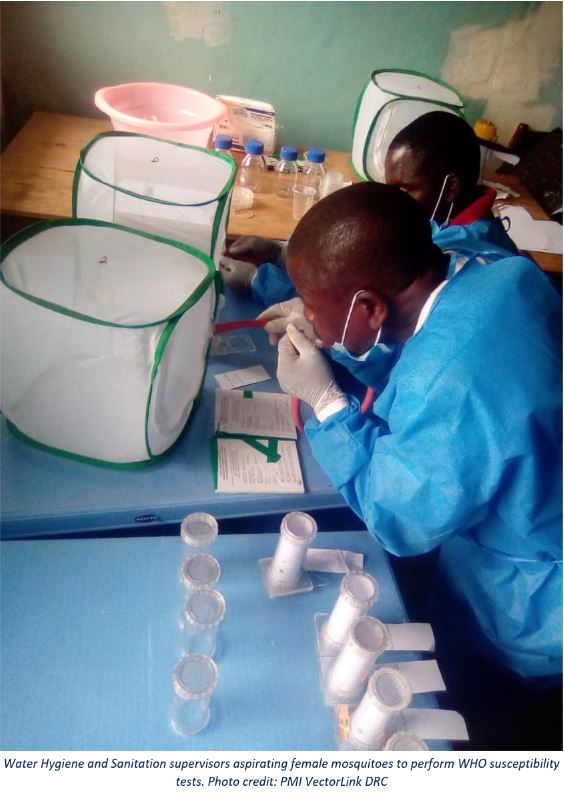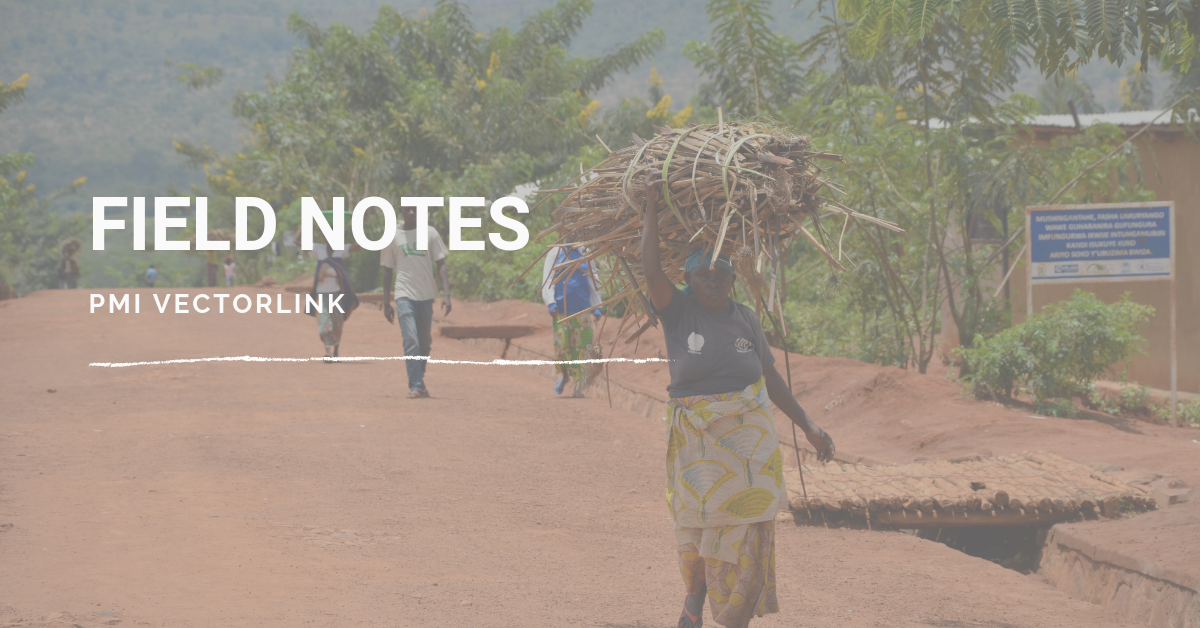 How can insecticide resistance testing occur when certain areas within a country are inaccessible due to insecurity? In the Democratic Republic of Congo (DRC), the PMI VectorLink team dealt with just that. Insecticide resistance testing helps inform insecticide-treated net (ITN) selection, so it’s important that data collected from these tests is representative of the country. For this week’s Monday Motivation, we’re highlighting the PMI VectorLink DRC team for working with the National Malaria Control Program (NMCP) to pilot a community-based approach to insecticide resistance testing in areas with limited accessibility.
How can insecticide resistance testing occur when certain areas within a country are inaccessible due to insecurity? In the Democratic Republic of Congo (DRC), the PMI VectorLink team dealt with just that. Insecticide resistance testing helps inform insecticide-treated net (ITN) selection, so it’s important that data collected from these tests is representative of the country. For this week’s Monday Motivation, we’re highlighting the PMI VectorLink DRC team for working with the National Malaria Control Program (NMCP) to pilot a community-based approach to insecticide resistance testing in areas with limited accessibility.
In the provinces of Ituri, Kasai, and Nord Kivu, PMI VectorLink DRC and the NMCP trained water, hygiene, and sanitation (WHS) health staff to conduct the testing. The health staff came to Kinshasa for a one-month training from August-September 2022, which was conducted through the Public Health School of Kinshasa. The trainees included two WHS supervisors and one provincial NMCP staff member per entomological surveillance site and covered topics such as insecticide susceptibility testing, insecticide resistance intensity and synergist assays, and adult sampling methods.
Following the training, the WHS supervisors conducted insecticide resistance testing in November 2022 and April 2023 in Rutshuru (Nord Kivu), Nyakunde (Ituri) and Mweka (Kasai) sentinel sites. The results from all provinces, including the ones with security issues, helped determine what type of ITN would be distributed in each province for future ITN distribution campaigns.
Excellent work enabling critical testing to occur in challenging circumstances, PMI VectorLink DRC!


